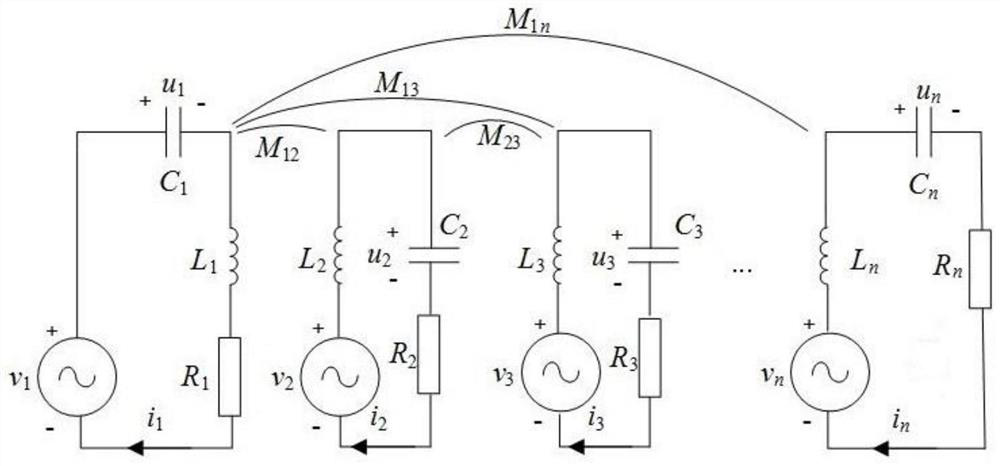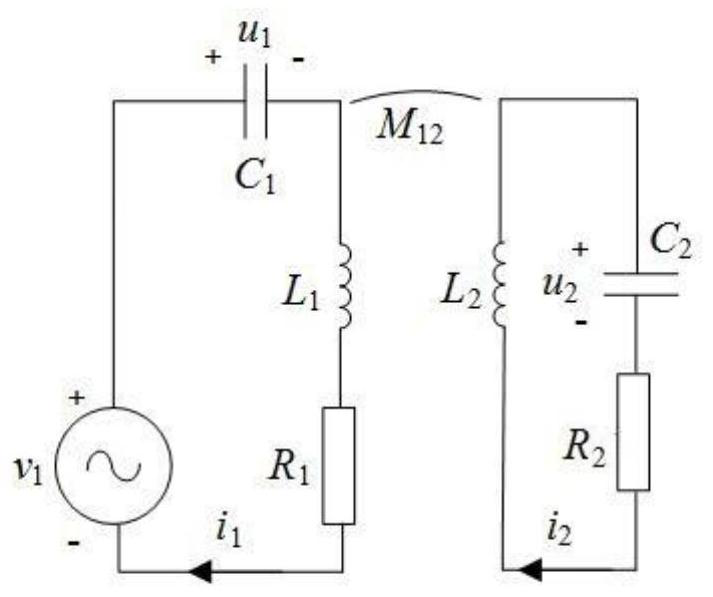MCR-WPT system resonance point configuration method based on modal analysis theory
A MCR-WPT, modal analysis technology, applied in the direction of circuit devices, electrical components, etc., can solve problems such as complex correspondence, sudden drop in system efficiency, and sharp increase in output current, and achieve simple configuration methods, strong versatility, and guaranteed tuning effect of effect
- Summary
- Abstract
- Description
- Claims
- Application Information
AI Technical Summary
Problems solved by technology
Method used
Image
Examples
Embodiment Construction
[0032] The present invention will be further described below in conjunction with the accompanying drawings and specific embodiments, so that those skilled in the art can better understand the present invention and implement it, but the examples given are not intended to limit the present invention.
[0033] This embodiment discloses a method for configuring resonance points of an MCR-WPT system based on modal analysis theory, including the following steps:
[0034] 1) Determine whether the MCR-WPT system belongs to the first type, if the MCR-WPT system belongs to the first type, then perform step 2), otherwise, perform step 5);
[0035] The first type is: the number of coupled inductor coils n≤3, and only the MCR-WPT system with variable coupling coefficient;
[0036] It can be understood that the MCR-WPT system that does not belong to the first type is a system that limits some electrical parameters or a system that does not limit electrical parameters, for example, a multi-c...
PUM
 Login to view more
Login to view more Abstract
Description
Claims
Application Information
 Login to view more
Login to view more - R&D Engineer
- R&D Manager
- IP Professional
- Industry Leading Data Capabilities
- Powerful AI technology
- Patent DNA Extraction
Browse by: Latest US Patents, China's latest patents, Technical Efficacy Thesaurus, Application Domain, Technology Topic.
© 2024 PatSnap. All rights reserved.Legal|Privacy policy|Modern Slavery Act Transparency Statement|Sitemap



